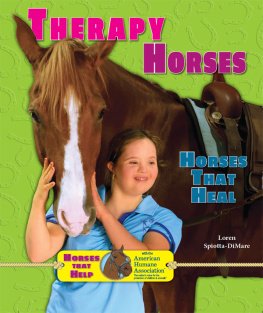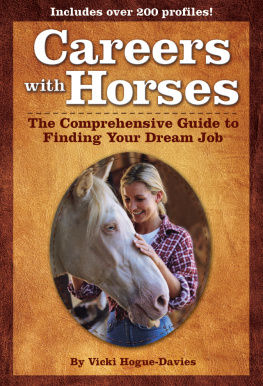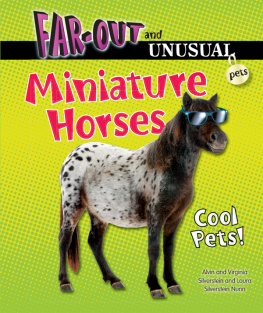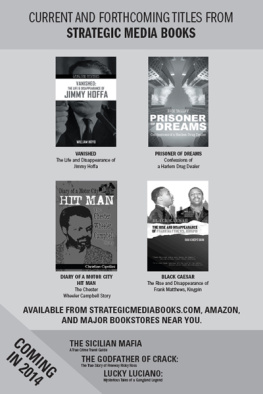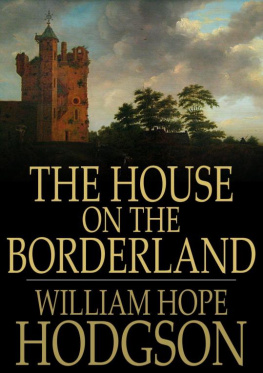Joe Tone - Bones : Brothers, Horses, Cartels, and the Borderland Dream
Here you can read online Joe Tone - Bones : Brothers, Horses, Cartels, and the Borderland Dream full text of the book (entire story) in english for free. Download pdf and epub, get meaning, cover and reviews about this ebook. year: 2017, publisher: One World, genre: Non-fiction / History. Description of the work, (preface) as well as reviews are available. Best literature library LitArk.com created for fans of good reading and offers a wide selection of genres:
Romance novel
Science fiction
Adventure
Detective
Science
History
Home and family
Prose
Art
Politics
Computer
Non-fiction
Religion
Business
Children
Humor
Choose a favorite category and find really read worthwhile books. Enjoy immersion in the world of imagination, feel the emotions of the characters or learn something new for yourself, make an fascinating discovery.

- Book:Bones : Brothers, Horses, Cartels, and the Borderland Dream
- Author:
- Publisher:One World
- Genre:
- Year:2017
- Rating:3 / 5
- Favourites:Add to favourites
- Your mark:
- 60
- 1
- 2
- 3
- 4
- 5
Bones : Brothers, Horses, Cartels, and the Borderland Dream: summary, description and annotation
We offer to read an annotation, description, summary or preface (depends on what the author of the book "Bones : Brothers, Horses, Cartels, and the Borderland Dream" wrote himself). If you haven't found the necessary information about the book — write in the comments, we will try to find it.
Joe Tone: author's other books
Who wrote Bones : Brothers, Horses, Cartels, and the Borderland Dream? Find out the surname, the name of the author of the book and a list of all author's works by series.
Bones : Brothers, Horses, Cartels, and the Borderland Dream — read online for free the complete book (whole text) full work
Below is the text of the book, divided by pages. System saving the place of the last page read, allows you to conveniently read the book "Bones : Brothers, Horses, Cartels, and the Borderland Dream" online for free, without having to search again every time where you left off. Put a bookmark, and you can go to the page where you finished reading at any time.
Font size:
Interval:
Bookmark:
If Im ever allowed to write more books, I vow to do that cool veteran-author thing, where the acknowledgments are two sentences, over and out. But just in case I dont:
My mom taught me to read, write, and edit, and even those are pretty low on the list of gifts shes given me, through genetics and the sheer force of motherly will. My dad and his siblings showed me by example how to tell a good story, and by ridicule how to avoid telling a bad one. My sister quietly demonstrated how to live generously and fully.
At Santa Clara University, professors Gordon Young and Barbara Kelley helped me find my place in journalism. In Cleveland, Pete Kotz taught me to think, drink, talk, listen, and write, between shifts producing powerhouse works of his own. My colleagues at the Dallas Observer and Voice Media Group, where I worked when I first started this project, were the ideal partners in mischief.
Several other journalists have reported on this story, and they were always gracious when our paths crossed, including Jason Buch, Jazmine Ulloa, Melissa del Bosque, Cecilia Ball, Alfredo Corchado, and Dianne Solis. Now at ProPublica, Ginger Thompson, who broke this story, was supportive and generous from the moment I decided to tell my own version of it.
I obviously couldnt have written this book if I couldnt report it, and reporting it required the intelligence and expertise of scores of people from the quarter-horse industry, law enforcement, the Texas legal bar, and other walks of life. There are too many to thank here, and many of them would rather not be called out anyway. That said, I do want to thank Mara Medina for her support and insight. And, obviously, I owe a great debt to Scott Lawson, for his generosity of time, spirit, intelligence, and wit. We didnt always agree but we did always get along, a feat that, nowadays especially, seems worth celebrating. I hope we get to soon.
Several families hosted and supported me in my travels, including the Bilanins, Kleinmans, Watkinses, and Nortons. I hope I left more beer than I drank. Other friends read early versions of this story, or otherwise helped me navigate the process of producing this book, including David Schechter, Justin Stenger, Obed Manuel, Gus Garcia-Roberts, Caleb Hannan, and Vince Grzegorek. The Salon and Marlin families offered bottomless love and support.
The teams at Stuart Krichevsky Literary Agency, Random House, and One World Books worked magic on this project and manuscript, including Cindy Spiegel, Julie Grau, Nicole Counts, Tom Perry, Greg Mollica, Andrea DeWard, Maria Braekel, Allyson Lord, Shona McCarthy, and freelancers Bonnie Thompson and Beverly Kennedy. In the United Kingdom, agent Felicity Rubinstein and Arabella Pike at William Collins shepherded this story gracefully.
From beginning to end, my agent, David Patterson, saw promise in this story, and in me, that I didnt always see in myself. My editor at One World, Christopher Jackson, saw that promise, too, and then worked tirelessly to bring it to life. Chris is truly brilliant, and fearless, and diligent, and kind, and hey: I wonder if I own the copyright to all the notes he wrote in the margins of my manuscript? I should look into that. Theyd make a good little book themselves.
I had one son when I first started looking into this story. He was about ten weeks old. By the time this book was published, he was in kindergarten, and his little brother was three. They made their contributions, mostly ensuring that I never slept past six-thirty A.M. and occasionally hijacking my laptop to inject some kasjg89;SX/jkqwd/jkbqwd into the story. Im so thankful to them for not deleting Daddys horsey book. But mostly Im grateful they were there, which was always enough to keep me going.
No one is owed more thanks than my wife, Melissa, to whom this book is dedicated. Writing it was literally her idea. Once she convinced me to pursue it, she encouraged me to write as she has always encouraged me to write, even when it wasnt especially clear how that writing would support or propel our family. She read pages, told me what to cut, endured my book-induced moodiness, and otherwise kept our lives together, all while running a business rooted in her lust to repair the world. If nothing else, I hope this book always reminds me of our earliest days as parents, and the beautiful grit with which she makes our life go.
J OE T ONE is an award-winning journalist whose work has appeared in The Washington Post,The Village Voice, and elsewhere. This is his first book. He lives in the Washington, D.C., area with his wife, Melissa, and two sons.
joetonewrites.com
Twitter: @joeptone
Y ouve seen a horse race. Maybe youve leaned over the rail at your local track, hollering at the seven because you bet the seven, for reasons that made sense at the time. Maybe youve donned a floppy hat and gotten hammered off mint juleps, running in from the kitchen to catch the end ofor maybe a replay of?the Derby. Maybe youve been in a Vegas sportsbook, where not even the immortal gods of American football can muscle the ponies off those little TVs in the corner.
Somewhere, someway, youve seen a horse race. Most likely you saw thoroughbreds, the horses that were loping down the backstretch when you stumbled in from the kitchen. Maybe you watched a steeplechase, for the novelty of seeing these graceful beasts leap through a manicured obstacle course. But its unlikely that youve ever knowingly watched a quarter-horse race, and, for our purposes, youll need to see one, if only in your minds eye or on YouTube.
Be forewarned: There are no mint juleps here. The best we can offer is a lime in your Corona.
The colonists who settled Virginia and the Carolinas invented quarter-horse racing in the 1600s. It was more or less an accident.
Theyd brought a handful of Arabians and thoroughbreds with them on the voyage, and between shifts tilling the New World, they started racing through the main streets of their newly settled villages. The races were informal and short, usually about a quarter of a mile, run between two horses down straight streets lined with villagers. But winning them became a point of pride, and over time, the colonists discovered that breeding their horses with those ridden by the natives resulted in even faster racehorses. They called this new breed the quarter-of-a-mile running horse, accurately if not cleverly.
Around this time, a British military captain visited North Carolina and wrote home about his experience. He marveled at the lush tobacco fields, the shocking barbarities of the Indians, and the horses:
They are much attached to quarter racing, which is always a match between two horses to run a quarter of a mile, straight out, being merely an exertion of speed. They have a breed that performs it with astonishing velocity.I am confident there is not a horse in England, or perhaps the whole world, that can excel them in rapid speed.
In the 1800s, as settlers moved west, they encountered a racing culture similar to the one established by those original colonists. Three centuries of ranching across Mexicoincluding in the northern state of Coahuila y Tejashad propagated a breed of stock horses built for working the farm. They were short, muscular, and placid amid the chaos of a cattle herd. They were cow ponies, first and foremost. But they could run, too, if only for a few hundred yards, and their serenity with a rider in the saddle made them easy to settle down at the starting line.
The Southwest in the nineteenth century was defined by bloodshed, as Coahuila y Tejas became the Republic of Texas, and then an American state. Throughout it all, though, the white American settlers, Mexican ranchers, and Native Americans challenged each other to quarter-mile races all across the disputed territory. Gamblers would line the track, forming a human rail, with money and property at stake. One race was said to attract such prolific betting that it bankrupted and shuttered an entire Texas town.
Font size:
Interval:
Bookmark:
Similar books «Bones : Brothers, Horses, Cartels, and the Borderland Dream»
Look at similar books to Bones : Brothers, Horses, Cartels, and the Borderland Dream. We have selected literature similar in name and meaning in the hope of providing readers with more options to find new, interesting, not yet read works.
Discussion, reviews of the book Bones : Brothers, Horses, Cartels, and the Borderland Dream and just readers' own opinions. Leave your comments, write what you think about the work, its meaning or the main characters. Specify what exactly you liked and what you didn't like, and why you think so.

